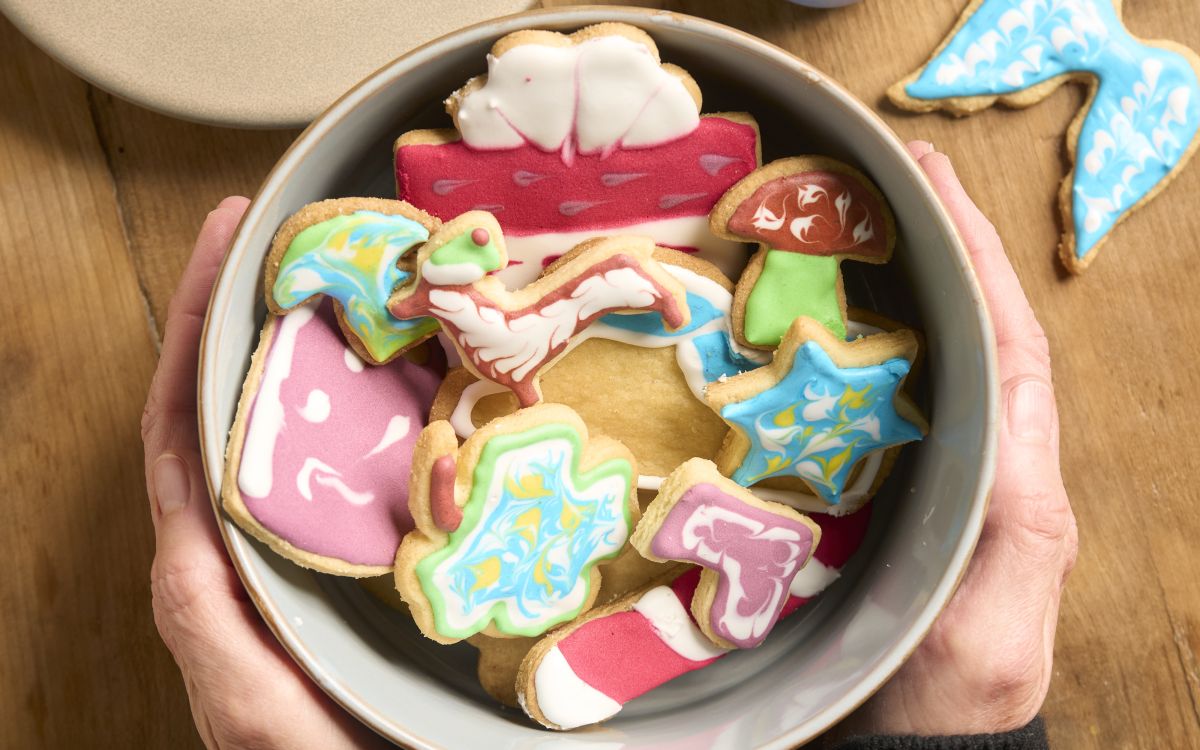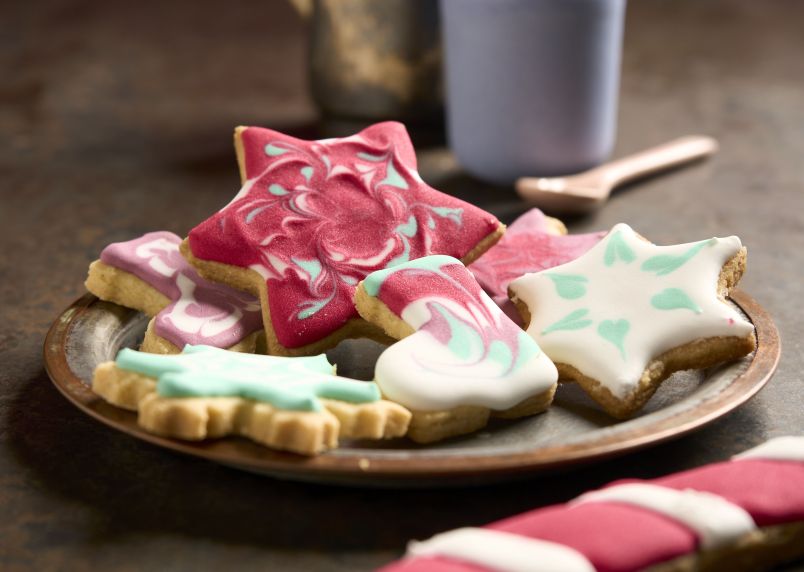Christmas baking trend: royal icing – here’s how it’s done!

Ready, steady, ice! With Christmas baking now picking up speed, half the fun is decorating our festive treats. The latest trend in the form of royal icing is perfectly timed and offers an impressive way to pimp such classics as butter biscuits.
In brief:
- What exactly is royal icing?
- How to mix royal icing
- What to remember when mixing
- How to decorate with royal icing
- Why this latest baking trend is worth a try
- Know your royal icing lingo
The fact that royal icing is trending in baking circles just before Christmas is hardly a coincidence. It can be used not only to decorate cakes, but also to add stylish, intricate embellishments to biscuits. This egg white-based icing turns simple Christmas biscuits into eye-catching treats while traditional varieties such as butter biscuits are given a contemporary twist.
The following butter biscuits are the perfect basis for trying out royal icing:
- Classic biscuits with royal icing
- Banana biscuits with royal icing
- Spelt biscuits with royal icing
- Gluten-free biscuits with royal icing
What exactly is royal icing?
Most of us are familiar with regular icing, but what about the sophisticated sounding royal icing? Well, it’s nothing other than icing made with stiffly beaten egg whites. And with a steady hand, it can be used to create edible works of art in miniature form.
Once the mixture of egg whites and icing sugar has a thick but malleable consistency, it can be precisely applied to surfaces with the aid of a piping bag. Mixed with various food colourings, piping with royal icing can even feel like painting. With intricate lines and delicate dots, gingerbread figures can be given an accomplished facial and snowflake cookies a crystalline finish.
The trick: The light-as-snow coating dries but doesn’t harden, meaning that biscuits retain their intended texture.
How to mix royal icing
The consistency of the icing depends on the desired creation: the stiffly beaten egg-white mixture is used to create the outline first and is then carefully thinned out with water (or lemon juice) as required.
How it’s done: To make our basic foodfittery recipe, whisk together 3 egg whites, 450 g of icing sugar and 3 tablespoons of water either in a food processor or with a hand mixer. Whisk at high speed for about 3 minutes until stiff.
What to remember when mixing
The consistency is crucial, and a 1:5 ratio is ideal. Because it is used raw, the egg white must of course be fresh.
If you want to give it a try, beat the egg whites at low speed until tiny bubbles start to appear. This will ensure that as little air as possible is incorporated. If the icing becomes too firm, you can whisk in some more egg white or a little water to achieve the desired consistency.
If the icing has the consistency of toothpaste, you’re good to go, as it will be stable enough to make the outlines and can then be thinned out for flooding.
How to decorate with royal icing
Now you can get decorating! Fill a piping bag with the thicker icing and start by drawing outlines around the edges of the biscuits. Leave to dry a little, then use a thinner icing to fill in the biscuits. Once dry, you can continue decorating by adding dots, for instance. If you want to get creative with different colours, take small portions of the base mixture and add a drop or two of your chosen food colouring to each.
Tip: After mixing, royal icing can be stored in the fridge for up to 3 days in an airtight container.
Why royal icing is worth a try
Reminiscent of freshly fallen snow, royal icing is a particular hit at Christmas and was originally used mainly to decorate gingerbread houses. Now you too can go wild decorating festive biscuits. With a little practice, even simple bakes can be artistically embellished and personalised with royal icing, turning your creations into perfect, edible gifts which can also serve as a thank-you when invited to afternoon tea or Christmas meal.
Know your royal icing lingo
- Piping: To decorate biscuits or even cakes with intricate lines, patterns and motifs with the aid of a piping bag.
- Outlining: To pipe a thin border around the edge of a biscuit using a fine nozzle.
- Flooding: To fill in the area inside the outline with a smooth layer of icing.
foodfittery tip: If you prefer your biscuits to be more wholesome, vegan or gluten-free, use the filters in the foodfittery app to add your preferences to your profile, or look out for the relevant symbols below the pictures in your recipe search.



